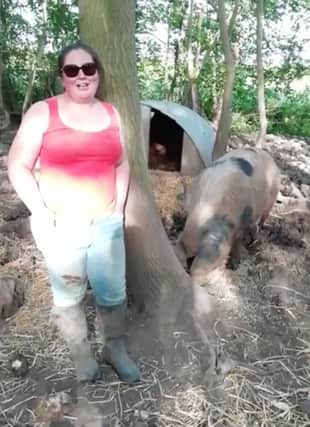Retford family farmers promote ethical pig-rearing in online video


Home Farm Produce – a small 350-acre family run farm – has recently taken part in a promotional video for ‘Farms Not Factories’ to highlight the benefits of keeping high-welfare animals and explain how they have been faring during the coronavirus.
The Matthews family have been farming on the site for more than 70 years and the pigs they keep live in woodlands, spending their days rooting and wallowing.
Advertisement
Hide AdAdvertisement
Hide AdDue to the impact of the Covid-19 crisis, they have found that not being able to sell at farmers’ markets and events has seen a large part of their business suffer.
But the family is happy that so many new customers are reaching out to them to buy directly.
Farmer Paula Matthews said: “We try and give our pigs the happiest life we can while they’re with us.
“In terms of our business we’ve not changed a lot of what we normally do since Covid began – the only thing we’ve really stopped doing is farmers markets and events, which was a big part of our business before.
Advertisement
Hide AdAdvertisement
Hide Ad"But we’ve grown in the direct selling to the customers. We’ve found a lot more customers are coming directly to us and they're really interested to know where their meat is coming from and how it is reared.”
The video, which is available to view at farmsnotfactories.org, uses the farm’s approach to encourage ethical living conditions for livestock.
‘Farms Not Factories’ uses films for public screenings and social media and the organisation publicises the damage caused by factory pig farming to animals, human health, the environment, rural economies and urges consumers to only buy local, high welfare and ethically-produced pork.
During Covid, they have been asking small scale pig farmers to film themselves explaining how their businesses are faring, and how they have adapted their sales strategies.
Hubie Leese, campaigns officer for ‘Farms Not Factories’, said: “Thankfully most are doing well as the lockdown has meant that more people are shopping locally from farmers they trust.”